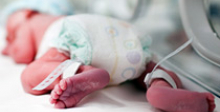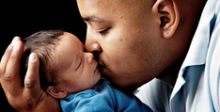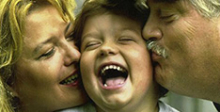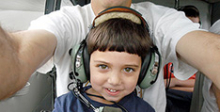
HELP
Many parents find it difficult to explain their emotions and thoughts at the time they receive their child’s diagnosis, and in the years that ensue. That’s understandable. It’s a life-altering moment often filled with feelings of sadness, helplessness, shock, anxiety, disbelief, and confusion. But, that gives way to strength, joy, tolerance, and triumphs. It may not be the expected journey we had for our children, but it is a beautiful journey, nonetheless.
Have questions? Call (800) 692-4453
Helpful suggestions:
- Learn as much about cerebral palsy as you can.
- Record what you learn about your child’s unique condition in a journal for future reference. Attach test and evaluation results.
- Work with your child’s primary care physician to develop a care plan.
- Implement the care plan by scheduling doctor and therapy appointments.
- Visit your local public school system to ascertain whether your child should enroll in early intervention or other special education offerings.
- Become familiar with your health insurance plan to determine whether it is the best choice for your family considering that your child will require additional care throughout his or her lifetime.
- Start a record keeping system.
- Seek support if, and when, needed.
- Get started with government benefits.





















